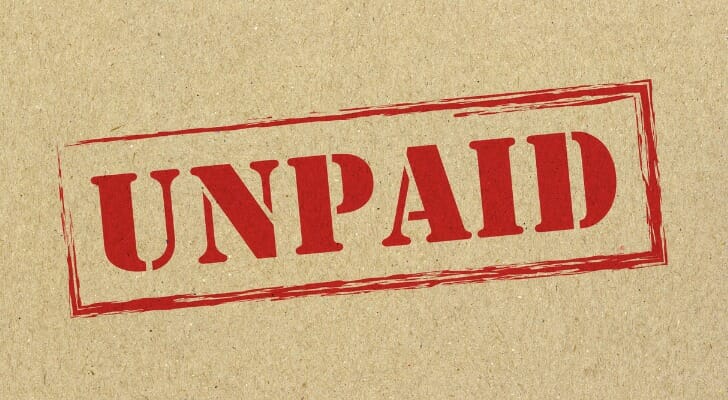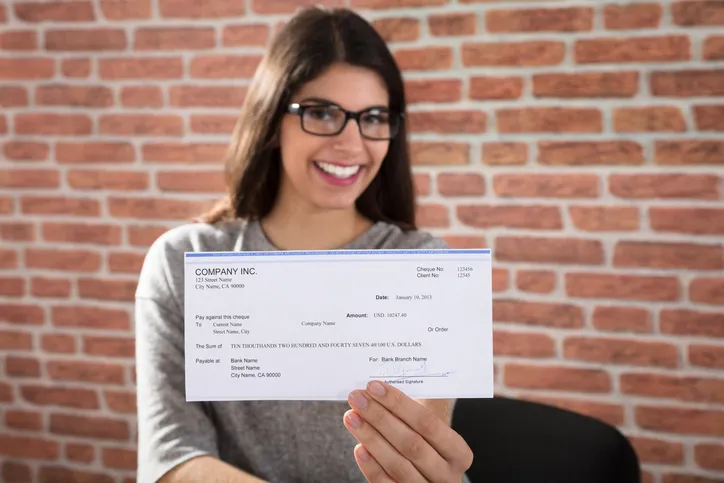

When a homeowner defaults on property taxes, the county may place a tax lien on the property. This could end in a tax sale with an investor paying the taxes to get the home. While tax sales can be profitable, they take a lot of research. However, savvy investors eager to take bigger risks may invest in tax sale properties. A financial advisor who serves your area can help you build an investing strategy around real estate.
A financial advisor may be able to help. Match with an advisor serving your area today.
Every year, property owners must pay their property taxes imposed by the county they live in. According to the U.S. Census Bureau, American households pay an average of $2,471 on property taxes annually. With all of the other expenses that homeowners are responsible for, it makes sense that some may find themselves in a financial bind if they can’t make this payment.
Homeowners that are unable to pay their property tax bill risk losing their property. Essentially, if the property tax bill goes unpaid, the county can sell a tax lien certificate to reimburse the government for the lost payment.
Counties auction off their tax lien certificates annually to the investors who are willing to pay the most. The county may also factor in the interest rate investors can charge the homeowner to recuperate the property tax debt.
If an investor decides to purchase a tax lien, the investor must pay off the outstanding property tax bill plus any fees or penalties. Then, you will reclaim the debt from the current homeowner with interest. Local guidelines determine rate restrictions and payment schedules.
If the homeowner fails to repay their debt, the investor is given the legal right to obtain the property’s title in the form of a tax sale.
Unlike tax lien certificate sales, tax deed sales come with the intention to purchase the property, not just the tax liability. The winning bidder of a tax sale inherits the rights to ownership of the property. A percentage of the sale will repay the tax debt, while the rest will go into the property’s owner’s pocket.
Some states have a redemption period that allows the original homeowner to regain ownership if they can pay off their tax debt. For states without redemption periods, the buyer will simply gain rights to the property.
So, if you’re looking to obtain full ownership of a tax sale property, you will need to follow several steps to ensure you make a smart investment. Keep in mind though, that every county and state may have different processes for conducting a tax sale.
Since you have a few months to get familiar with a property of interest, take the time to do your due diligence and ensure it’s a wise investment. For example, if there is a tax lien on the property, it’s common that other liens exist. If other liens do exist, this investment is likely not worthwhile.
In the case you do move forward with the purchase of a tax sale and discover there are other liens on the property, it’s possible you could lose the home altogether. This is because you must pay off all liens on the property before the sale is complete.
It’s important to point out, you probably won’t be able to walk through or see inside the home before your purchase.

Auctions are exciting environments. So, because you are bidding on a property during an auction, it’s easy to let your adrenaline take over. For this reason, you must set a budget for the amount you’re willing to pay on a property. If you don’t, you could bust your budget and investment. The majority of auctions are cash-only payments. While each auction will have its own rules, normally, you should expect to pay a large lump sum in cash. Whether you have saved up money to buy a home, you have funds available from a personal loan, or a home equity loan from another property, you must have cash in hand to use at these auctions.
Have your strategy planned out for bidding. It’s good to know the home values in the neighborhood and the average amount the property may be worth once you’ve completed any remodeling or repairs necessary. Knowing this can tell you if your investment is worthwhile. Usually, homes are sold to the highest bidder. Keep in mind that there will be other real estate investors to compete against, all having an objective similar to yours.
If you’re the highest bidder, it’s time to pony up and pay for the home. You must come with cash or a cashier check for the entire balance. Depending on your county’s guidelines, you may have a few days to pay off your balance. But, in some cases, you must pay right after the auction.
Either way, you’ll want to go into the auction financially prepared. That way, if you have a successful bid, you can complete the transaction with ease.
Once you complete the transaction, you are now the owner of the home, and you can do with the property as you wish.
Buying tax sales can be a competitive environment. Unfortunately, if you’re just entering the tax deed scene, it’s easy to overpay for a property. This leaves very few opportunities for savvy investors who could yield a big profit.
Also, not every property will make it to auction. For example, if the property taxes are paid in full, or the homeowner files bankruptcy, the county may not move forward with the auction. In some cases, you may spend countless hours researching several properties, and only one ever actually makes it to auction.
Overall, it’s possible to identify an off-market property that can yield a great investment opportunity. However, not every property will provide a decent return on investment. So, before you take a deep dive into this type of investment, make sure you are familiar with the tax laws and guidelines of your state and county. Researching past sales can help you get a feel for the deals available in your neck of the woods. It will also help you assess if this investing endeavor aligns with your goals and risk tolerance.

Tax sales are attractive to savvy investors. However, buying a property with delinquent taxes requires a lot of upfront money and can carry substantial risks for novice investors. If you don’t have the capital to invest in tax sale properties, you may want to consider mutual funds or ETFs. Before investing in any tax sales, make sure to do your due diligence or even consult a financial advisor.
Photo credit: ©iStock.com/ChrisSteer, ©iStock.com/PeopleImages, ©iStock.com/turk_stock_photographer
Ashley KilroyAshley Kilroy is an experienced financial writer currently serving as an investment and insurance expert at SmartAsset. In addition to being a contributing writer at SmartAsset, she writes for solo entrepreneurs as well as for Fortune 500 companies. Ashley is a finance graduate of the University of Cincinnati. When she isn’t helping people understand their finances, you may find Ashley cage diving with great whites or on safari in South Africa.
Read More About Taxes



More from SmartAsset
SmartAsset Advisors, LLC ("SmartAsset"), a wholly owned subsidiary of Financial Insight Technology, is registered with the U.S. Securities and Exchange Commission as an investment adviser. SmartAsset's services are limited to referring users to third party advisers registered or chartered as fiduciaries ("Adviser(s)") with a regulatory body in the United States that have elected to participate in our matching platform based on information gathered from users through our online questionnaire. SmartAsset receives compensation from Advisers for our services. SmartAsset does not review the ongoing performance of any Adviser, participate in the management of any user's account by an Adviser or provide advice regarding specific investments.
We do not manage client funds or hold custody of assets, we help users connect with relevant financial advisors.
This is not an offer to buy or sell any security or interest. All investing involves risk, including loss of principal. Working with an adviser may come with potential downsides such as payment of fees (which will reduce returns). There are no guarantees that working with an adviser will yield positive returns. The existence of a fiduciary duty does not prevent the rise of potential conflicts of interest.